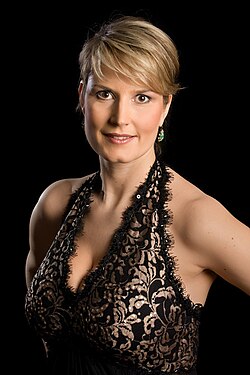
This is a list of operatic sopranos and mezzo-sopranos who were born in Finland or whose work is closely associated with that country.

This is a list of operatic sopranos and mezzo-sopranos who were born in Finland or whose work is closely associated with that country.





{{cite book}}: CS1 maint: multiple names: authors list (link){{cite book}}: CS1 maint: multiple names: authors list (link){{cite book}}: CS1 maint: multiple names: authors list (link){{cite book}}: CS1 maint: multiple names: authors list (link){{cite book}}: CS1 maint: multiple names: authors list (link){{cite book}}: CS1 maint: multiple names: authors list (link){{cite book}}: CS1 maint: multiple names: authors list (link){{cite book}}: CS1 maint: multiple names: authors list (link)